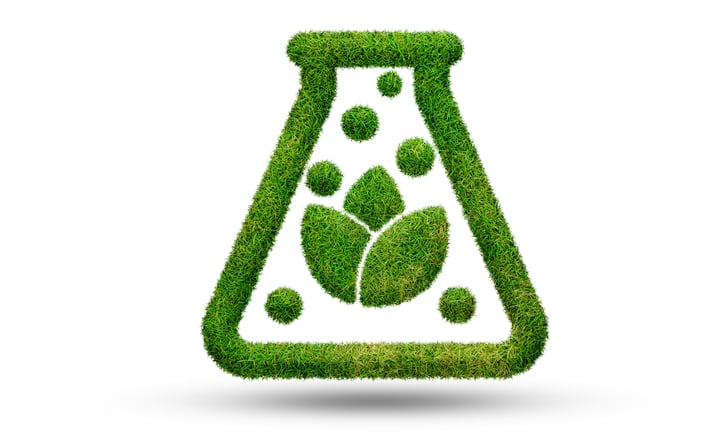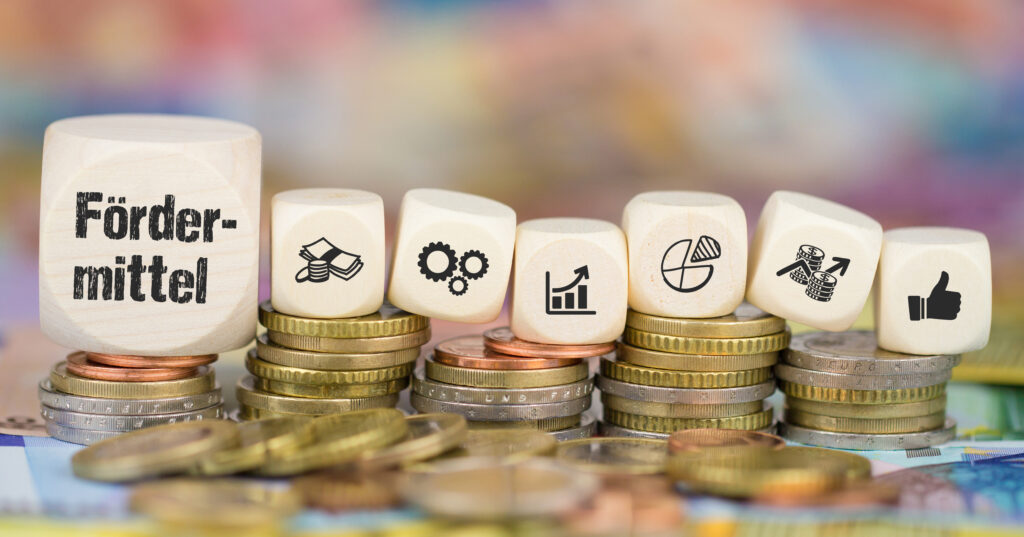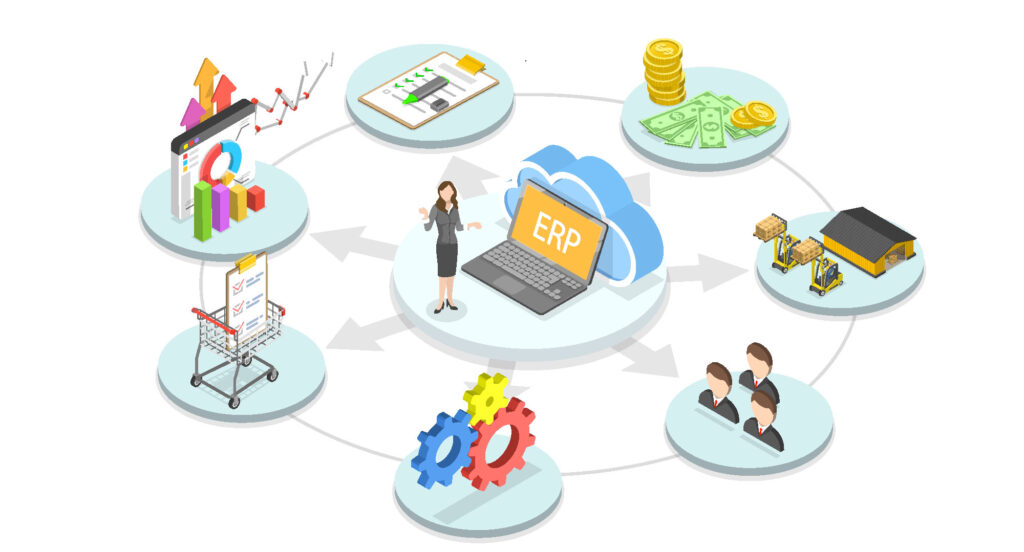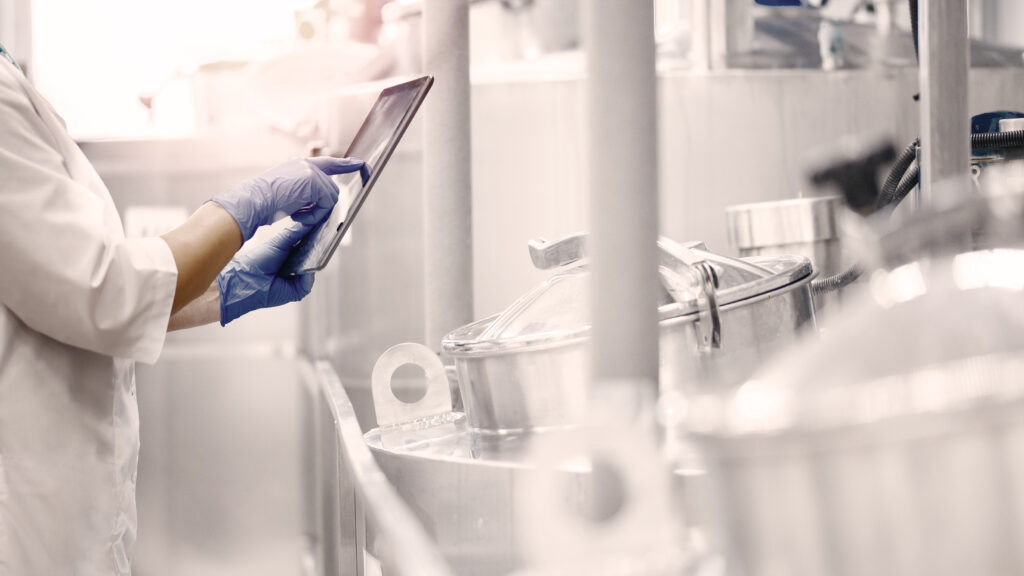
The chemical-pharmaceutical industry has two faces: on the one hand, it manufactures products that reduce greenhouse gases and save energy. On the other hand, the industry's CO₂ emissions still account for a large proportion of total industrial emissions in Germany.
So it's no wonder that sustainability has been at the top of the agenda in the chemical and pharmaceutical industries for years. Digital technologies are one key to changing business processes sustainably. ERP systems in particular can make a significant contribution here.
"Between the devil's work and the solutions industry" - this was the title of a 2021 study conducted by the Rheingold Institute on behalf of the German Chemical Industry Association (VCI) and the IG BCE industrial union. Tenor of the results: People are divided when it comes to the chemical-pharmaceutical industry. On the one hand, the industry is seen as a solution provider for urgent problems such as the coronavirus pandemic or climate change. On the other hand, however, for many, chemistry is also synonymous with environmental pollution. This is no coincidence: after all, the industry's CO₂ emissions amounted to around 38.9 million tons in 2020 alone.
This double-edged image is nothing new and is certainly one of the reasons why the industry has been working for many years with joint initiatives (e.g. Chemie³) to anchor sustainability as a guiding principle for the sector. With success: many companies have been able to significantly reduce their greenhouse gas emissions per product unit in recent years - despite the coronavirus pandemic and the Ukraine crisis. But there is still room for improvement. The EU-wide climate target of reducing greenhouse gas emissions by 55% by 2020 compared to 1990 is extremely ambitious, especially for an energy-intensive industry such as the chemical industry.
Digital technologies are almost always involved in the implementation of these goals: whether networked plant control systems, seamless batch tracing, digital assistants in research or classic ERP systems. The latter play a key role as the central hub of all company processes:
- Intelligent planning, sustainable production
ERP systems generally offer special planning and forecasting applications that are designed to ensure that only the quantities of a product that are actually required are manufactured. Overproduction, which ties up valuable resources and may ultimately have to be destroyed or expensively stored, can thus be largely avoided. The production processes themselves can also be controlled with the support of machine learning so that only a small amount of waste is produced. - Detect faults before they occur
Predictive maintenance of machines makes it possible to use algorithms and sensors to continuously monitor and analyze measurement and production data from machines and systems in order to predict possible malfunctions and proactively plan maintenance times. Machines are thus optimally utilized and have a longer service life.
- Complete traceability of primary products
ERP systems allow all flows of goods to be tracked and controlled transparently. Fossil raw materials, such as crude oil or natural gas, but also renewable raw materials, such as starch, sugar, cellulose or fats, can be traced from extraction to processing. Information on all players involved in the supply chain also enables the chemical company to source specific resources from suppliers with a particularly small carbon footprint. - Combine deliveries
An ERP system also ensures efficiency in scheduling, warehouse management and purchasing, thereby protecting the environment and climate. Depending on the order situation and stock levels, the company software can automatically determine optimal order times and order quantities so that, for example, climate-damaging individual deliveries no longer need to take place. - Operating IT in the cloud
The central operation and air conditioning of servers and storage in large data centers is generally more efficient than if each company operated its own infrastructure. The cloud also makes it easier to link processes across companies, for example along the supply chain. What's more, the cloud allows employees to work from any location. This saves long distances, valuable time and ultimately CO2. - Use computer capacities efficiently
Those who use computing and storage power efficiently and/or rely on energy-efficient computer architectures (e.g. ARM) save electricity. Shared infrastructures, for example, ensure that computing power that is not required can be used by others. Integrated, modular ERP systems also prevent redundant data storage in distributed applications and thus make a further contribution to saving energy. - Save paper
Enormous amounts of water, energy and chemicals are required to produce paper. ERP systems offer document management modules with which a large proportion of company processes can be handled digitally. Whether orders, quotations or invoices - all documents are recorded, assigned and booked centrally. Even invoices are sent digitally, eliminating the need for expensive and environmentally harmful letter post. - Prove sustainability
From 2024, the EU wants to oblige all companies with more than 250 employees to regularly publish a sustainability report. Here, too, an ERP system proves to be a great help: because if you want to determine your carbon footprint, you need correct and complete data on almost all areas of your company. For this purpose, the market offers CO2 management software that, in conjunction with an ERP system as a backbone, makes it possible to track and document emissions along the entire value chain. The start-up AllocNow has also been offering a software-as-a-service solution specifically for the chemical industry for some time now.
Climate protection and image cultivation
ERP systems certainly cannot solve the climate problem. But they can help chemical and pharmaceutical companies to reduce their resource and energy consumption and thus achieve the ambitious goals of the EU-wide Green Deal. This not only helps the environment, but also increases the company's profitability. And, incidentally, sustainable management strengthens the image of the entire industry. So it's a win-win situation in every respect.



